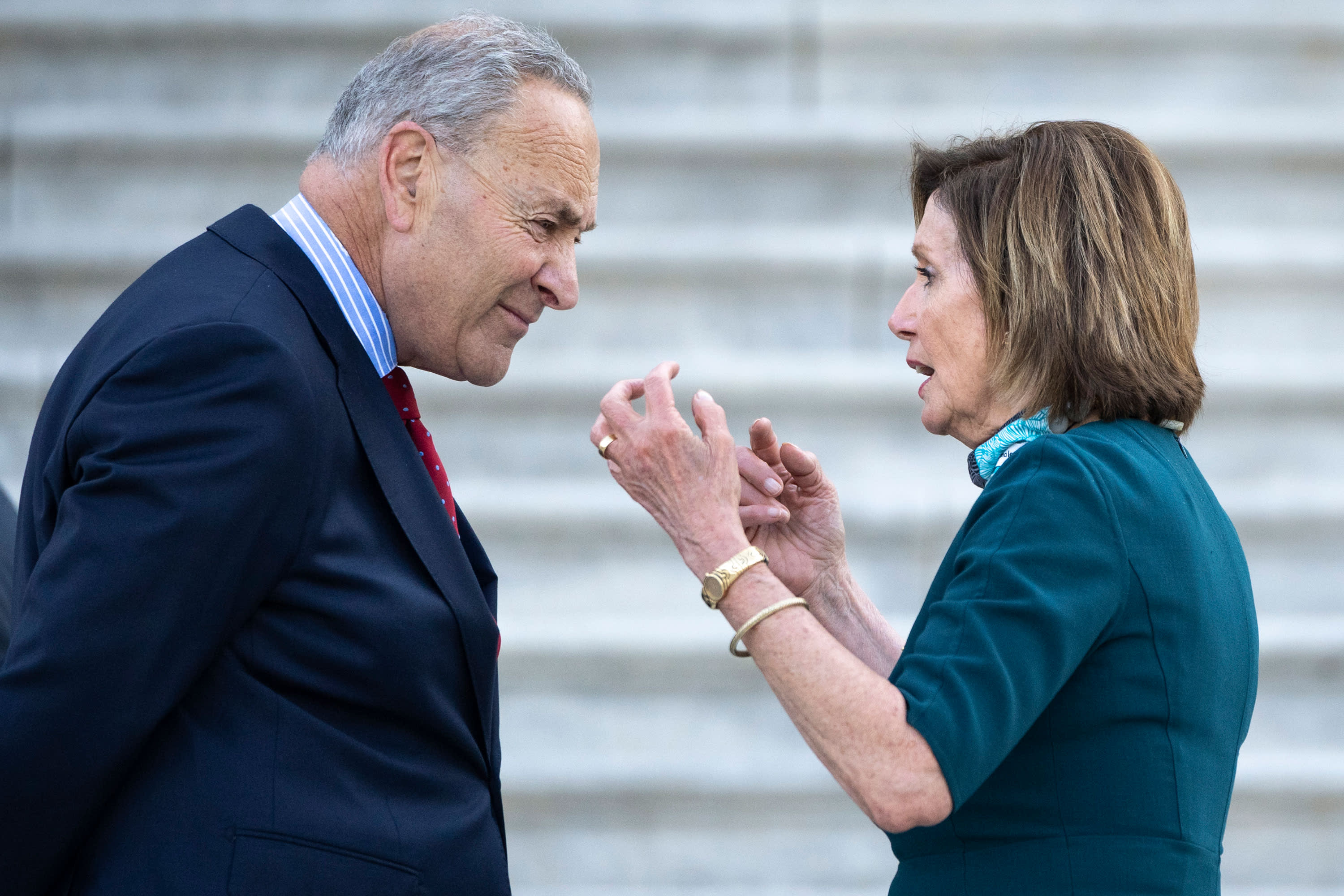
WASHINGTON – With just one day left before President Joe Biden departs for a week of summits in Europe, Democrats in Congress were still deep in negotiations Wednesday over several key pieces of the president’s social safety net and climate bill.
But there was visible progress on at least one issue: Taxes.
On Tuesday, three Democratic senators introduced a plan to impose a 15% minimum tax on corporate book income, which would apply only to companies that reported over $1 billion in income for three straight years.
The plan quickly garnered approval from two key centrist Democrats in the Senate: Kyrsten Sinema of Arizona and Joe Manchin of West Virginia.
Yet even as Democrats coalesced around the 15% minimum corporate tax, two other proposed tax changes appeared to be headed for the chopping block.
A plan to have banks report cash flow information to the IRS for accounts with more than $10,000 in non-wage deposits was no longer under serious consideration, CNBC’s Kayla Tausche reported Wednesday, citing three sources familiar with the matter.
A late-breaking plan to annually tax the unrealized market gains of the very richest Americans – people reporting more than $100 million of income or holding more than $1 billion in assets – also appeared to be on shaky ground Wednesday. Manchin told reporters he thought the plan was “convoluted.”
Potential sources of revenue to pay for the bill received new attention this week after Sinema announced in mid-October that she would not support a long-standing plan to generate revenues by raising the corporate income tax rate and the top individual tax bracket rate.
Democrats need all 50 senators in their caucus to pass any bill, so Sinema’s announcement left the party scrambling.
But while taxes and “pay-fors” continued to vex some Democratic lawmakers, questions about what benefits the bill would actually provide loomed even larger.
These disagreements largely centered around whether and how to preserve certain benefits contained in Biden’s original social spending proposal, such as federal paid family leave and Medicaid expansion, while keeping the overall cost of the bill under $2 trillion.
Manchin opposes several of the proposed benefit expansions, and he continued to exert outsized influence Wednesday over the talks.
Manchin says his opposition to expanding Medicaid and Medicare is rooted in his concern about the two programs’ long-term financial viability.
Medicaid provides health insurance to more than 75 million low-income and vulnerable Americans, while Medicare subsidizes health care for more than 60 million individuals over 65 years old.
Manchin also opposes a popular plan to create a system to administer and fund a federal paid family leave system for all workers.
Paid family leave was a central part of the promise that Biden made during his 2020 presidential campaign, to ease the financial burden on working families.
But Manchin sees it as an additional, unnecessary government benefit in the bill, one which raises the overall cost of the legislation.
This is a developing story, please check back for updates.
— CNBC’s Kayla Tausche contributed reporting.




